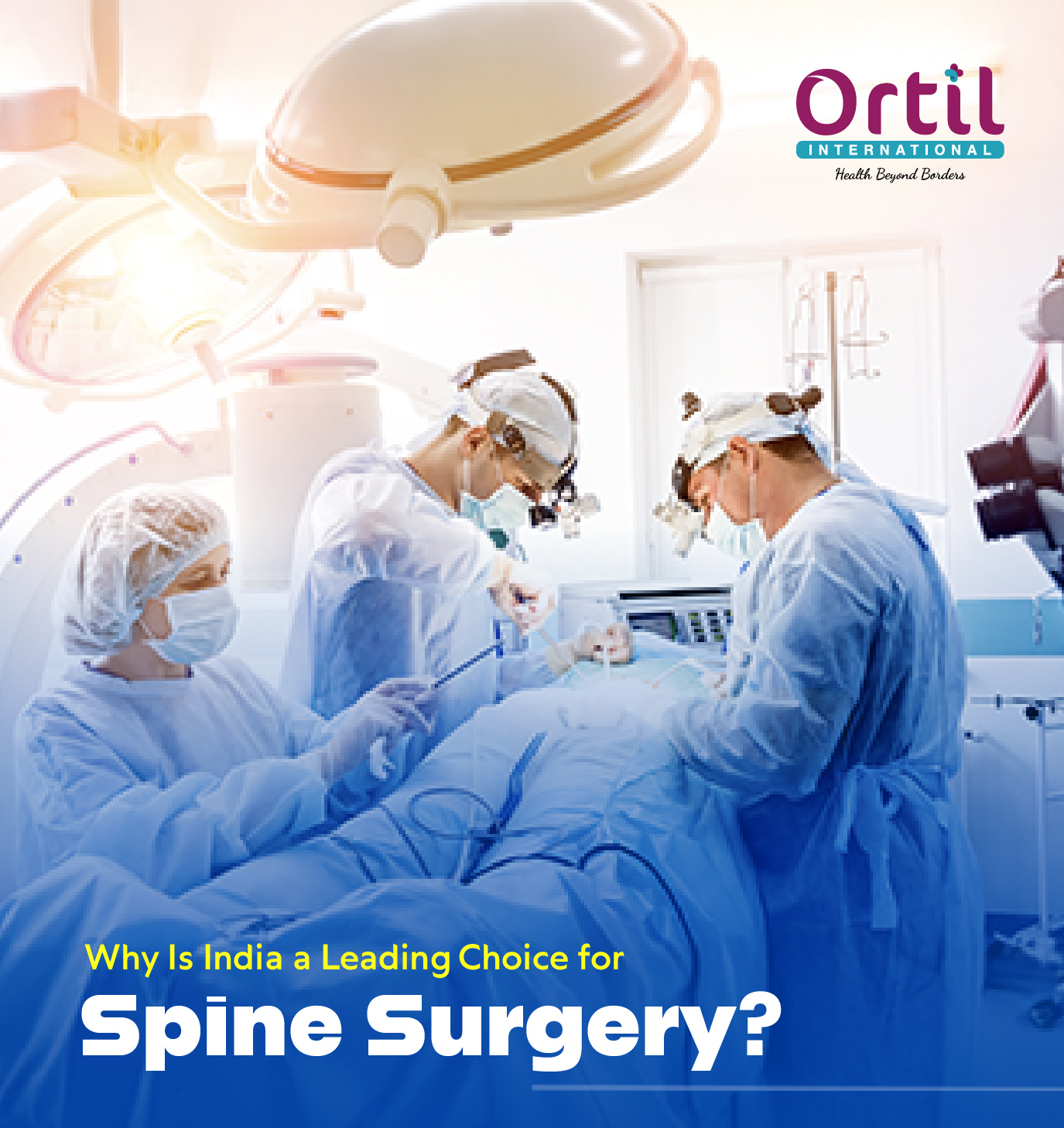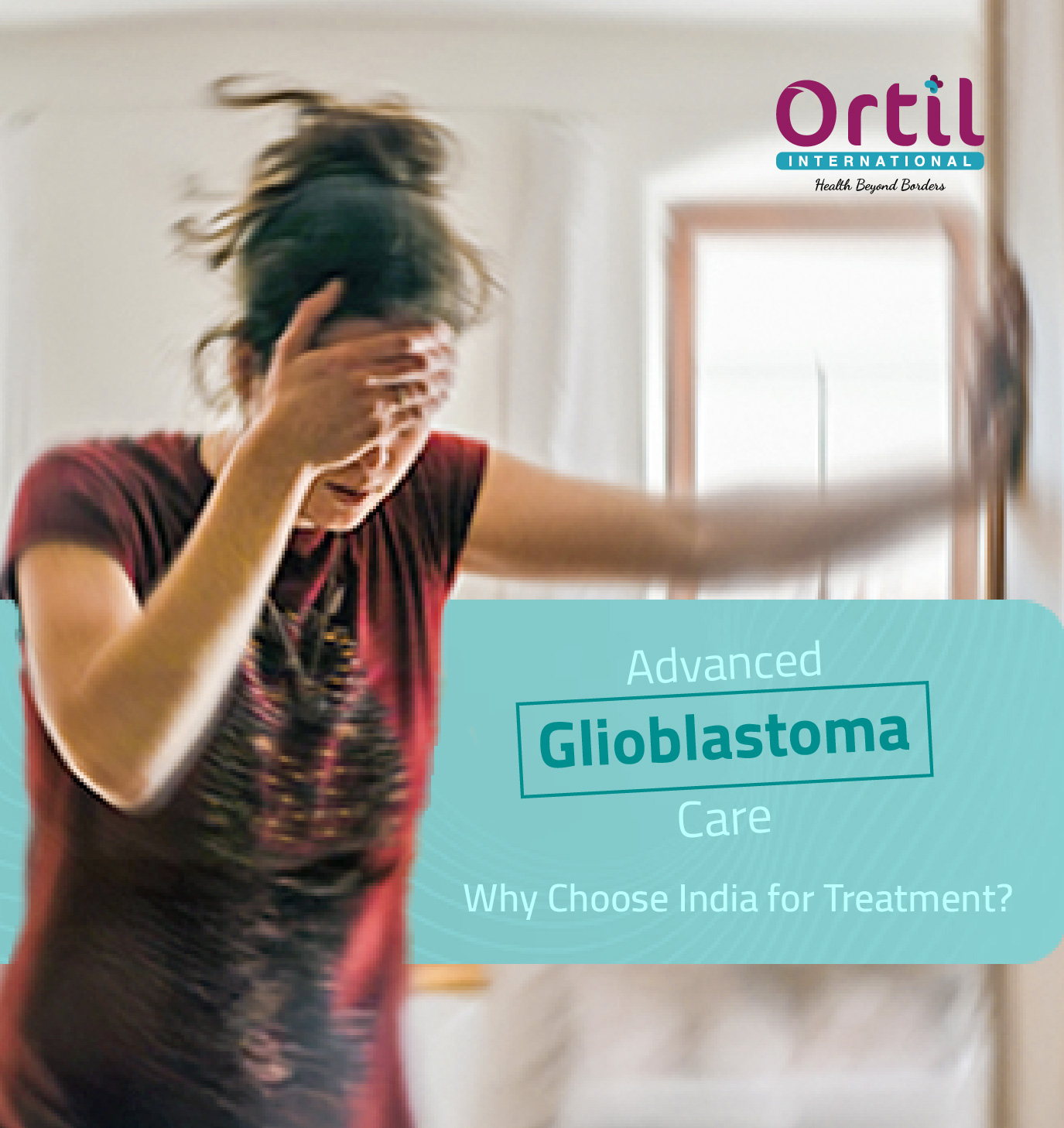Traveling to India for Cervical Cancer Treatment: A Step-by-Step Guide
Summary
India is a global leader in advanced cervical cancer treatments. With major oncologists, cutting -edge technology and internationally accredited hospitals, patients around the world choose India for timely and effective care.
Introduction
Cervical cancer is a serious health issue for women across the globe, including India. However, with significant advances in medical technology, treatment options have greatly improved, early detection of the disease and timely treatment significantly improves survival results. India has emerged as a main destination for the treatment of cervical cancer due to its medical excellence, low cost and compassionate care.
Understanding Cervical Cancer Treatment in India
The management of cervical cancer in India is multidisciplinary with gynaecologic oncologists, radiation oncologists and surgical teams. Indian cancer centres provide world-class protocols such as surgery, radiotherapy, chemotherapy and immunotherapy, based on the stage and type of cervical cancer.
What is Cervical Cancer Treatment
Cervical cancer arises on the cervix, lower part of the uterus, and is primarily associated with chronic infections with high-risk human papillomavirus strains (HPV). Early detection by examinations like Pap smear and HPV testing greatly enhances the possibility of successful treatment.
Types of Cervical Cancer Treatment
-
Surgery
-
Radiotherapy
-
Chemotherapy
-
Directed therapy
-
Immunotherapy
Who Needs Cervical Cancer Treatment
Any woman diagnosed with:
-
Precancenial lesions (Cin or cervical dysplasia)
-
Early cervical cancer (stage I or II)
-
Locally advanced cervical cancer (stage III)
-
Metastatic cervical cancer (stage IV)
-
Positive cervical lesions for HPV
Pre-Procedure (Preparation Phase)
Before starting treatment:
-
Pap smear and HPV test
-
Biopsy confirmation
-
MRI/CT/PET scans for staging
-
Blood tests and liver/kidney function assessment
-
Multidisciplinary tumour board evaluation
-
Counselling on treatment options, fertility preservation, and side effects
Post-Procedure (Recovery and Follow-Up Phase)
-
Hospital stay varies by treatment type (1–7 days for surgery, outpatient for chemo/radiation)
-
Follow-up 3–6 months intervals for the initial two years
-
Management of side effects like fatigue, menopause symptoms, and vaginal stenosis
-
Nutritional and psychological counselling
-
Long-term surveillance for recurrence
Why Choose India for Cervical Cancer Treatment
-
Gynaecological Oncologists Globally Trained and Radiation Oncologists
-
Access to more recent therapies (robotic surgery, impert, immunotherapy)
-
Short time or without waiting
-
Teams of multilingual international patients
-
Modern cancer centres accredited by NABH and JCI
-
Personalized care for physical and emotional well-being
Top Hospitals in India
Cost of Cervical Cancer Treatment in India
Cost components:
-
Evaluation and pre-treatment tests: ₹ 30,000- ₹ 60,000
-
Surgery (hysterectomy/radical hysterectomy): ₹ 1.50.000 - ₹ 2.50.000
-
Chemotherapy (per cycle): ₹ 20,000 - ₹ 50,000
-
Target/Immunotherapy (if applicable): ₹ 1.50,000 - ₹ 3.50.000
Total Estimated Cost
The total cost of cervical cancer treatment in India usually ranges from ₹ 2.50,000 to ₹ 7.00,000 (US $ 3,000 - US $ 8,400 USD) for anticipated to moderately advanced stages. Advanced stage treatments involving targeted therapy may go up to ₹12,00,000 ($14,500 USD)
Cost Comparison
|
Countries
|
Cost
|
|
India
|
$3,000 – $8,000
|
|
USA
|
$30,000 – $70,000
|
|
UK
|
£20,000 – £50,000
|
|
Thailand
|
$10,000 – $15,000
|
|
Turkey
|
$12,000 – $20,000
|
Survival Rates
Factors Influencing Success
-
Cancer stage and spread
-
Timeliness of diagnosis
-
Patient’s age and overall health
-
Treatment modality (surgery, chemo, radiation)
-
Adherence to follow-up and medication
Challenges and solutions
Challenges:
Solutions in India:
-
Accessible HPV screening programs
-
Specialized cancer counselling services
-
Minimally invasive and fertility preservation options
-
Emotional support and comprehensive doctor
How We Help
-
Free medical opinion from India’s top oncologists
-
Quick hospital appointments and treatment plans
-
Visa and travel assistance
-
In-hospital language interpreters
-
Support with accommodation and post-treatment follow-up
Legal and ethical considerations
-
Consent form for treatment and surgery
-
Fertility preservation options discussed for younger women
-
Strict guidelines followed for radiation and administration of medicines
-
Confidentiality and international rights of the patient maintained
Recovery and after treatment
-
Most women resume normal life within 6 to 8 weeks after treatment
-
Emotional recovery supported through counselling and support groups
-
Regular gynaecological exams and images necessary for 5 years
-
Lifestyle changes (diet, tobacco stop, regular check-ups)
Conclusion
India provides safe, cost-effective and internationally competitive cervical cancer treatment. With state-of-the-art facilities, warm care and individualized treatment protocols, patients from all over the world are finding new hope and a cure in India Oncology hospitals.
FAQs
Q1: Is cervical cancer treatment in India safe?
Absolutely, India has internationally accredited cancer institutions with very high success rates.
Q2: How long do I have to remain in India?
Duration of treatment differs according to the stage and the type. Typically 4-8 weeks.
Q3: Am I able to preserve fertility if diagnosed early?
Yes, procedures like trachelectomy preserve fertility in cases that are suitable.















.webp)


